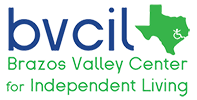Disability Services, Texas A&M University
- Provide on-going service and case management to a caseload of students with disabilities.
- Identify students with disabilities who are eligible for services (review documentation, conduct initial interviews).
- Assist as needed with exam accommodations and other assigned projects.
- Consult with campus units and departments regarding accessibility issues and laws.
- Serve on University, Division and Departmental committees and task forces.
- Keep updated on research and issues related to students with disabilities in higher education.
- Evening work and/or travel may be required.
- Other duties as assigned.
- See posting number #: S00375FY14
- It is also strongly recommended that all applicants attach/upload a current resume and cover letter as part of the online application.
Department of Disability Services
Cain Hall B118, 1224 TAMU
College Station, Texas 77843-1224






